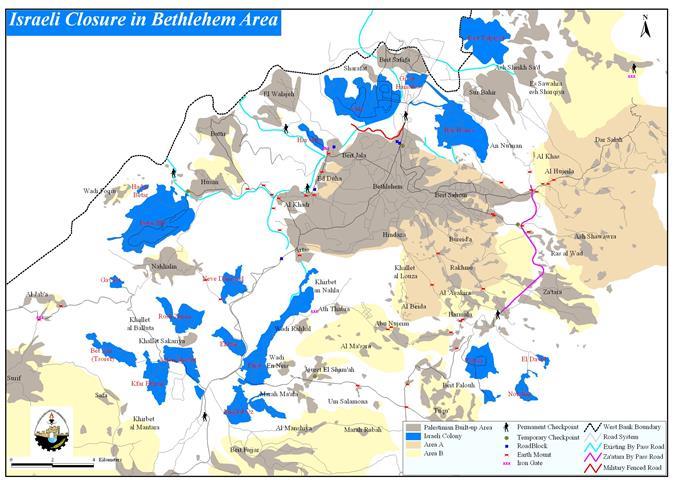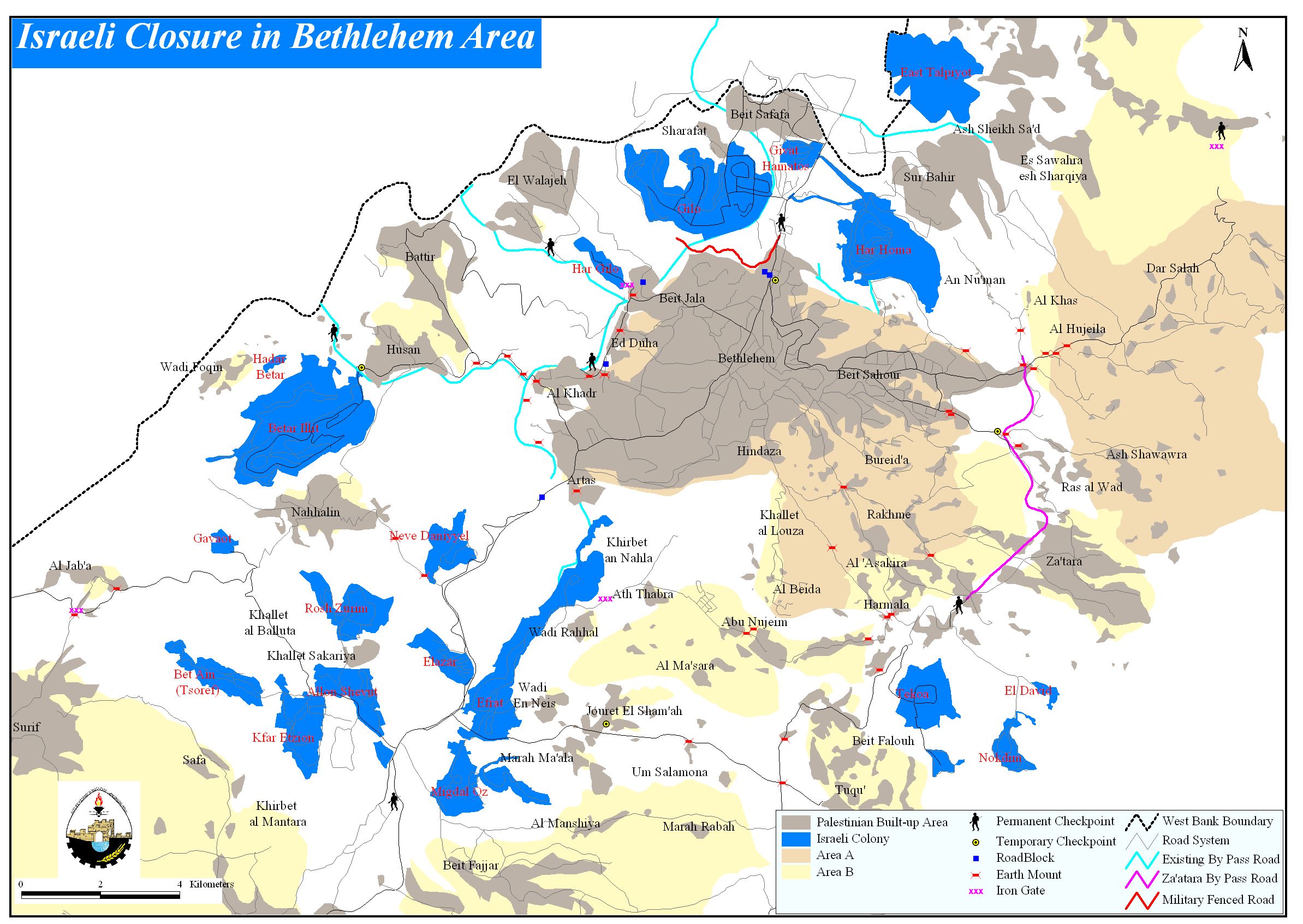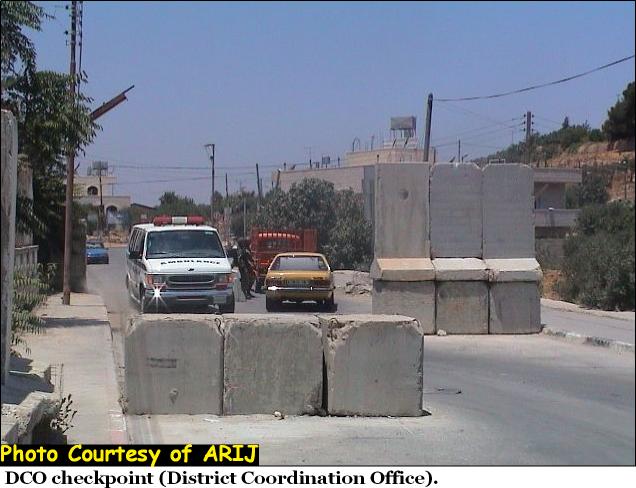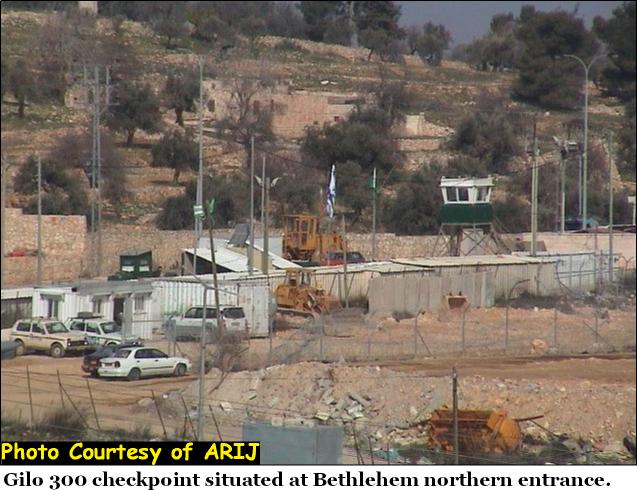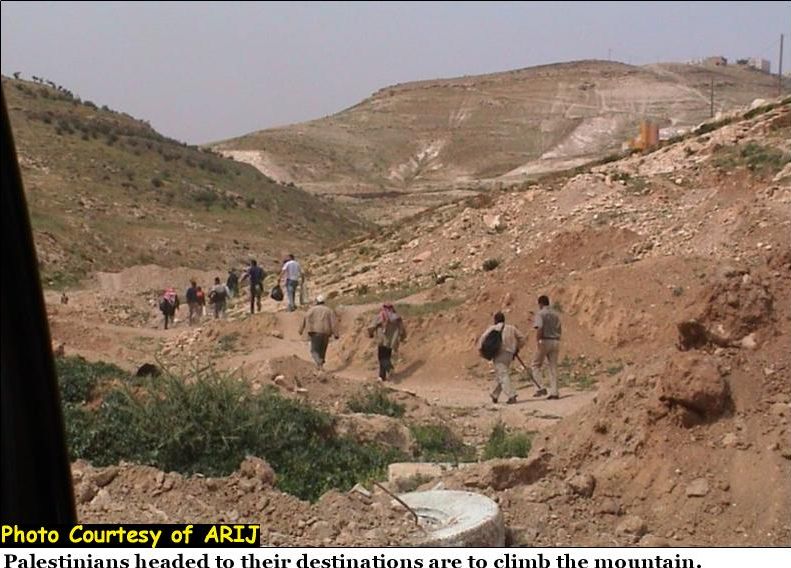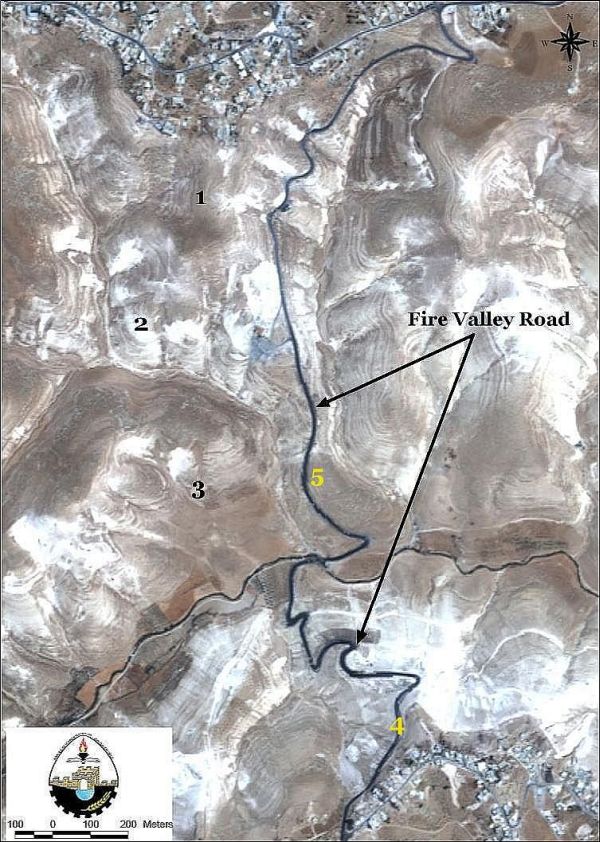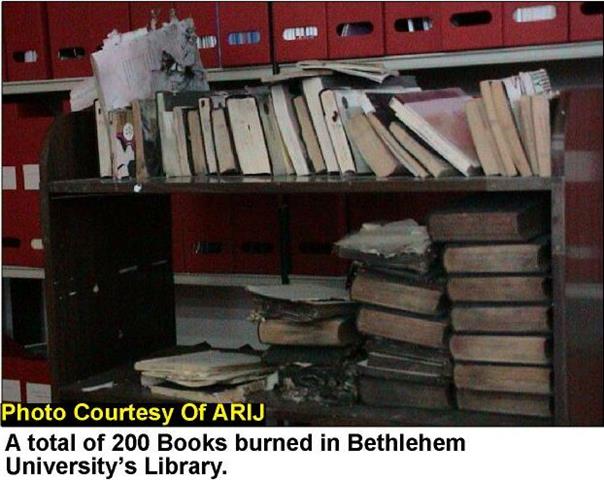Click to read the article in German
Bethlehem is one of the most celebrated cities in the world due to its eminence as the cradle of Christianity. Bethlehem Governorate (district) encompasses 72 towns and villages with a population of more than 169 thousand Christian and Muslim Palestinian inhabitants (PCBS 2003). The city of Bethlehem was and is to this day the main economic, social, cultural and urban center of the governorate as well as one of the major regional centers in the West Bank.
Bethlehem and Closure:-
Since the 22 of February 2004, the Israeli occupation forces (IOF) escalated their measures against Palestinian citizens in Bethlehem and imposed a tight closure on the governorate. The closure was further tightened following the assassination of Sheikh Ahmad Yasin on the 22 of March 2004. Palestinian citizens weren't able to head to their destinations in the neighboring governorates such as Ramallah and Jerusalem due to the Israeli restrictions at the Israeli checkpoints. See map of Checkpoints in Bethlehem governorate
Israeli measures are characterized in the following:
1- Palestinians had to use alternative roads that substitute for the closure of the main roads which were also closed by IOF such as the main roads located near the village of Husan, Al Khader village and Cidron Valley which is considered the only entrance for Bethlehemites from Jerusalem, Ramallah and the northern areas. Israeli soldiers guarding the checkpoints have blocked Gilo 300 and DCO checkpoints, preventing Palestinian civilians from entry or exit even on foot, making their daily lives unendurable since they were imprisoned in Bethlehem as a result of this closure. See Photo 1
Israeli Soldiers guarding at Gilo 300 checkpoint went on with their policy of humiliating Palestinians who were trying to use the checkpoint point on their way to work, schools, hospitals, worship places, markets and other social services. The soldiers declared the area (Rachel's Tomb and Gilo 300 surroundings) as closed; thus paralyzing the mobility of Palestinians. In addition, many Palestinians were beaten up by the Israeli soldiers. Drivers had to turn around before they reached the checkpoint area fearing that the Israeli soldiers would puncture their cars' tires. In some cases, the Israeli soldiers who caught taxi drivers driving in the area, took their car keys forced them to leave the vehicles by the street side for hours. See & Photo 2
2- The Cidron valley road OR the so called 'The Fire Valley Road:-
It usually takes a person 10 minutes down and around the Mountains to arrive at the Israeli checkpoint (The Container checkpoint) established on the crossroads leading to areas of As Sawahra Ash Sharqiya, Abu Dis, Ramallah and the other northern governorates. See Photo 3, Container checkpoint.
The Israeli soldiers at the checkpoint blocked the streets with thick concrete blocks ever since the checkpoint was established. Palestinians heading to their work and Universities are usually delayed due to the Israeli harsh procedures at the checkpoint.
Nowadays, if a person, for example, wants to travel from Bethlehem area to the neighboring Palestinian town of Abu Dis through the fire Valley road, which is considered the only exit for Bethlehemites and the neighboring governorates such as Hebron, it would take him/her more than 3 hours just to get to his/her destination. Students heading to Universities such as Al Quds University are missing most of their lectures due to the delays they face at the checkpoints and the alternative routes they have to take which prolongs time estimated to reach the University and most of the times, they cannot even make it there. Teachers, school students, employees, laborers, women and seniors pulling along with difficulty their packages, school bags, and other associated items and trying to pass everyday are faced up by daily harassments and delays due to the fact that they have to climb 200-300 meters high and dangerous hilly mountain (slope), (about 1-1.5 kilometers distance) to sneak past the Israeli closure measures in order to get their destinations. See Photo 4 & Photo 5 and map of location
The level of Israeli militarism against Palestinians at the Qidron Valley Road (Fire Valley Road) increased and no one is allowed to use the streets. The access road to Abu Dis town in East Jerusalem, reached a limit of confrontation by the Palestinians who'd walk for a long time to get to their destinations in the morning and back to their homes in the evening.
3- The Israeli civil administration in Bethlehem district issued permits for Palestinians Christians at Easter time as part of a deliberated policy aimed at creating a sense of discrimination between Muslims and Christians in Bethlehem. While allowing Christians to leave Bethlehem during Christmas and Easter holidays to visit the holy places, Muslims during Ramadan and Al Adha feasts are not given any permits and are usually kept out of the holy city; thus preventing them from praying at al-Aqsa mosque in Jerusalem during their celebrations. The principle of issuing permits to Christians while excluding Muslims shows the Israeli intentions of creating a sense of injustice between Muslims and Christians living together in peace and harmony in Bethlehem.
4- Unfortunately, people who got permits and tried to leave Bethlehem through either the DCO or Gilo 300 checkpoints to participate in Easter celebrations in Jerusalem where faced up by an ill treatment by the Israeli soldiers at checkpoints. Hundreds of Palestinian Christians who were headed to Jerusalem stood in a long row, waiting for their IDs to be checked, hoped that the Israeli soldiers would allow them to pass through the checkpoint easily as they have permits to enter Jerusalem, while the IOF actions at checkpoints were sharply sarcastic and away from the virtues and morals of a human being and contradicting Geneva Conventions, article 27, Paragraph 1 which refers to religious convictions and practices and respect of human beings: 'Protected persons are entitled, in all circumstances, to respect for their persons, their honor, their family rights, their religious convictions and practices, and their manners and customs. They shall at all times be humanely treated, and shall be protected especially against all acts of violence or threats thereof and against insults and public curiosity'.
While citizens of Bethlehem are still celebrating the joy and peace of Easter time, they continue to live in timid and troubled times with daily harassments and a closure imposed on the region since a quite long period of time; thus preventing them from practicing their right of worshiping.
The second Intifada witnessed a variety of Israeli measures committed against Palestinians and their private properties which truly affected the Palestinian economy and at the same time led to desperation and humanitarian crisis;
Prepared by:
The Applied Research Institute – Jerusalem


